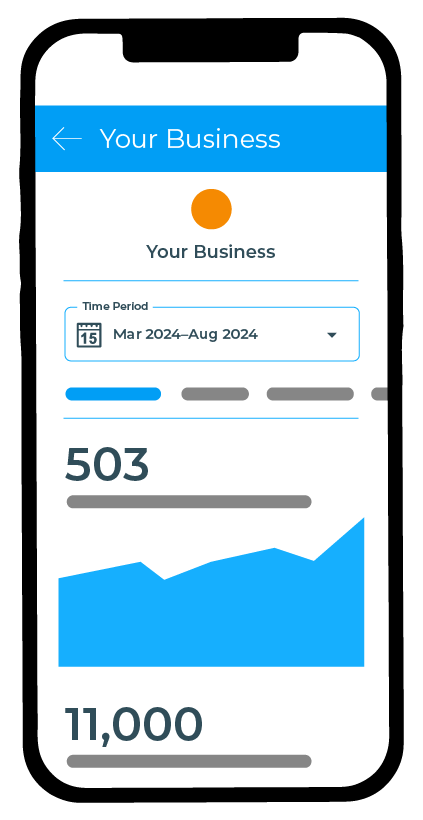In the competitive world of online shopping, having a solid ecommerce strategy isn’t enough. To truly stand out, you need to integrate search engine optimization (SEO) into your ecommerce framework. This powerful combination can drive organic traffic, improve visibility, and ultimately boost sales. Here are the top 10 tips for seamlessly integrating SEO and ecommerce strategies to take your online store to the next level.
Table of Contents
- Conduct Thorough Keyword Research
- Optimize Product Pages
- Create a Logical Site Structure
- Leverage Mobile Optimization
- Prioritize Page Speed
- Develop High-Quality Content
- Use Schema Markup
- Build High-Quality Backlinks
- Optimize for Voice Search
- Monitor and Adjust Your Strategy
- Partner with BizIQ to Help You Combine SEO and eCommerce
Conduct Thorough Keyword Research
Keywords are the foundation of any successful SEO strategy. Identify terms and phrases your potential customers are searching for by using tools like Google Keyword Planner, Ahrefs, or SEMrush. Focus on a mix of high-volume and long-tail keywords relevant to your products.
For eCommerce, it’s essential to include transactional keywords, such as “buy,” “discount,” or “shipping,” alongside product-specific terms. For example, instead of just “running shoes,” aim for “buy men’s running shoes with free shipping.”
Optimize Product Pages
Every product page is an opportunity to rank in search engine results. Ensure each page is optimized with unique, keyword-rich product titles and meta descriptions. Include high-quality images with descriptive alt text and provide detailed product descriptions that incorporate your target keywords naturally.
Don’t overlook user reviews and ratings—these not only help with conversions but also provide fresh, keyword-relevant content for search engines.
Create a Logical Site Structure
A well-organized website is crucial for both user experience and SEO. Design a clear navigation menu and categorize your products to make it easy for users and search engines to find them. Use breadcrumb navigation to improve internal linking and make your site’s structure intuitive.
Additionally, ensure that your URLs are clean and descriptive. Instead of a generic URL like www.store.com/p1234, opt for something like www.store.com/women-shoes/running-shoes to improve keyword relevance.
Leverage Mobile Optimization
With more than half of all online shopping done on mobile devices, optimizing your ecommerce site for mobile users is no longer optional. Use a responsive design that adapts to different screen sizes and ensures fast load times.
Google’s Mobile-First Indexing means the mobile version of your site is prioritized in search rankings, so make sure your mobile SEO is on point.
Prioritize Page Speed
Slow-loading websites are a major turn-off for shoppers and can hurt your SEO rankings. Use tools like Google PageSpeed Insights to identify and fix speed issues. Compress images, minimize CSS and JavaScript, and use a Content Delivery Network (CDN) to ensure your site loads quickly for users worldwide.
Fast-loading pages not only improve your rankings but also enhance user experience, reducing bounce rates and increasing conversions.
Develop High-Quality Content

Content marketing is a powerful tool for driving organic traffic to your ecommerce site. Create blog posts, guides, and videos that provide value to your audience while subtly promoting your products. For example, a fashion retailer could publish a guide on “How to Style Summer Dresses” featuring items from their collection.
Ensure your content is optimized for SEO by including keywords, internal links, and meta tags. High-quality, engaging content keeps users on your site longer, signaling to search engines that your site is valuable.
Use Schema Markup
Schema markup helps search engines understand the content of your ecommerce site. Add structured data for product details, prices, availability, and reviews to make your listings more attractive in search results. Rich snippets, such as star ratings or product pricing, can significantly improve your click-through rates (CTR).
Implementing schema markup is especially useful for ecommerce sites, as it makes your products stand out in crowded search results.
Build High-Quality Backlinks
Backlinks from reputable sites signal to search engines that your ecommerce site is trustworthy and authoritative. Partner with bloggers, influencers, or industry websites to create backlinks through guest posts, product reviews, or collaborations.
Avoid low-quality or spammy links, as these can harm your SEO efforts. Focus on earning links organically by providing valuable content and products that others want to share.
Optimize for Voice Search
Voice search is becoming increasingly popular, thanks to devices like Google Home and Amazon Echo. Optimize your ecommerce site for voice search by targeting conversational, question-based keywords. For example, include phrases like “Where can I buy organic skincare products?” in your content.
Voice search optimization also involves ensuring your site is mobile-friendly and your content is concise and well-structured, as voice assistants often pull answers directly from search snippets.
Monitor and Adjust Your Strategy

SEO and ecommerce are dynamic fields that require constant monitoring and adaptation. Use tools like Google Analytics and Search Console to track your performance metrics, including traffic, bounce rates, and conversion rates.
Identify areas for improvement, such as underperforming product pages or keywords that aren’t driving traffic. Regularly update your SEO strategy to stay ahead of algorithm changes and competitor tactics.
Partner with BizIQ to Help You Combine SEO and eCommerce
Integrating SEO and ecommerce isn’t just about driving traffic—it’s about creating a seamless, user-friendly experience that converts visitors into loyal customers. By implementing these 10 tips, you’ll set your online store up for success in an increasingly competitive marketplace.
Whether you need help with local or organic SEO, PPC campaigns, social media management, or website design and development, BizIQ’s team of digital marketing experts is here to help. Contact us today for a free analysis and quote, and let us guide your business to new heights in the digital space.











